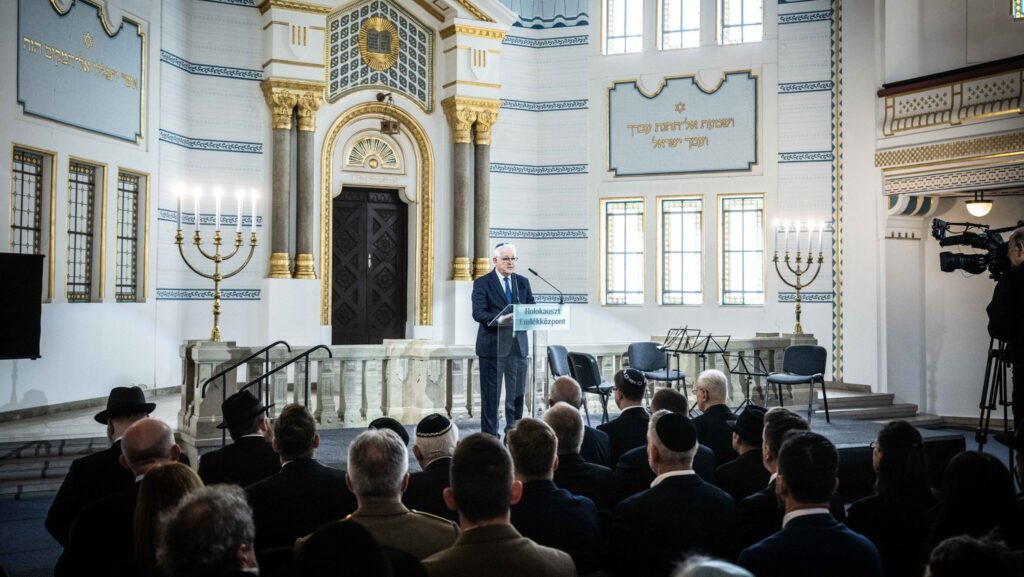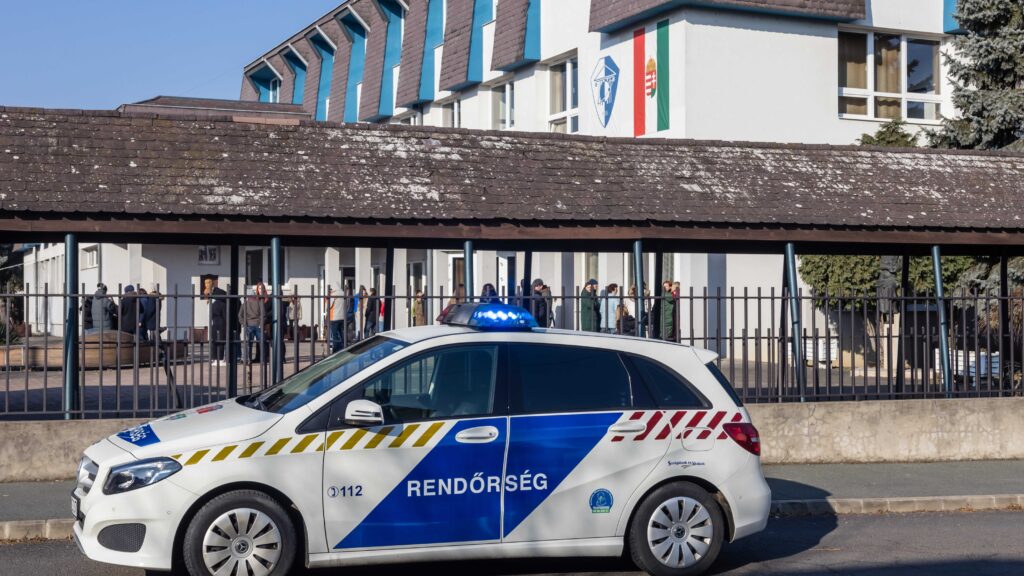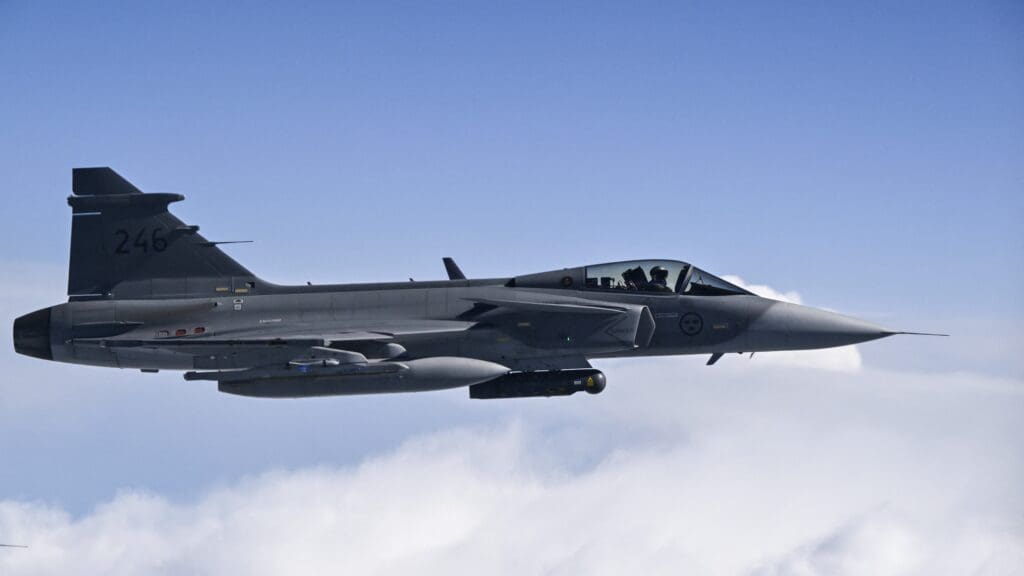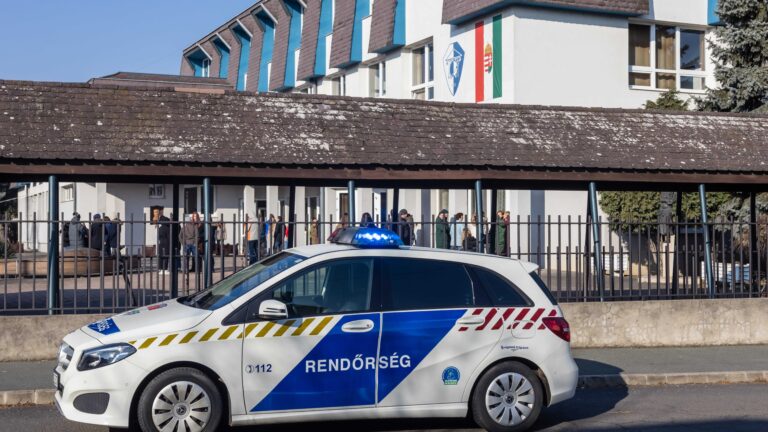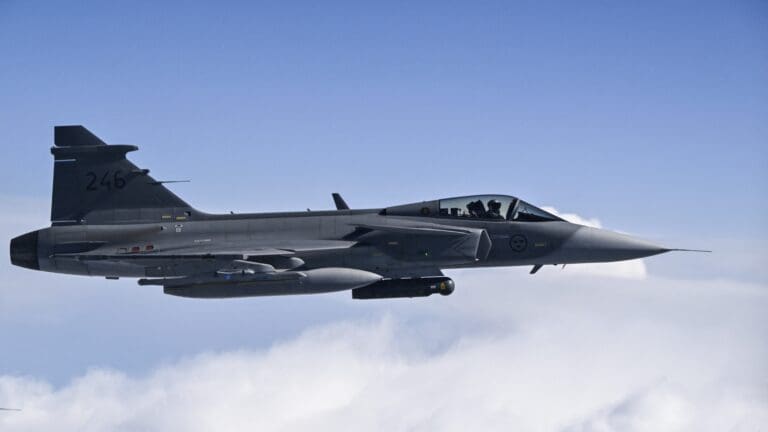History, like man, awakens thirsty from its slumber. The Russo-Ukrainian War particularly lends credence to this understanding of human affairs, as its long-term ramifications on international relations have yet to be fully understood. The conflict truly is a Zeitenwende—a watershed, but also ‘a turn in the times, the change of an era’. Ukraine’s transformation from post-Soviet buffer state between Russia and the United States and the European Union (the West) into the front line between these two worlds signals not only the end of the post-Cold War order, but likely also of the liberal globalized economy that has been taken for granted for decades. Future geopolitics will most likely see the return of competing great powers, rival economic blocs, scrambles for resources in third party countries, and more.
How will the struggle between Russia and the West play out? The answer to that may depend on Hungary. Though itself not economically or militarily strong enough to be considered a significant force in world affairs,
Budapest has the potential to act as a mediator between Washington, Brussels, and Moscow.
Doing so would be challenging, but the benefits of success would make Hungary a determinant player in European geopolitics. The key to achieving this is for Hungary to embrace becoming what is called a ‘keystone state’.
A World of Keystone States
As the global international order shifts from US unipolarity towards multipolarity, largely thanks to China’s geopolitical rise and the relative decline of American preponderance, analysts have sought to develop new frameworks for understanding why some countries will soon matter more than others. We hear of the Chinese ‘General Framework for Foreign Relations’ (zongti waijiao buju), Ian Bremmer’s ‘Pivot States’,1 the ‘Middle Powers’ of Arta Moeini et al.,2 and so on. Perhaps the most consequential category though is that of ‘Keystone States’, originally conceptualized by US Naval War College professor Nikolas K. Gvosdev in a 2015 issue of Horizons: Journal of International Relations and Sustainable Development.3
Keystone states, Gvosdev explains, give ‘coherence to a regional order—or, if it is itself destabilized, contribute to the insecurity of its neighbors’. These states, ‘located at the seams of the global system’, are connectors and mediators—they serve as gateways between regions, blocs, civilizational groupings, and so forth. They possess integrative power, the ‘ability to generate positive relationships’. As Gvosdev elaborates, this can come from a variety of sources: ‘the existence of important transit and communications lines that are vital for trade traversing its territory; the position of the state to promote regional integration and collective security among its neighbors; its role as a point of passage between different blocs, or its position overlapping the spheres of influence of several different major actors, thus serving as a mediator between them; or its willingness to take up the role as a guaranteed barrier securing neighbors from attack’.4
Thus, in a multipolar era of strategic competition between great powers, keystone states assume an outsized importance and relevance. They are at once the crucial actors undergirding the stability of any particular region, the key chokepoints of the global economy, and the diplomatic mediators necessary to maintain peace and order. But keystone states have a strict requirement in order to function: a firmly realist, self-interested foreign policy outlook.
One example of a successful keystone state is Azerbaijan. Today, the country is of vital geostrategic importance in international affairs: it is located at the crossroads of the historical Russian, Turkish, and Persian empires (contemporary Iran); it is a key part of the Middle Corridor transport and trade routes that connect Europe with both the Middle East and Asia; it sits on 7 billion barrels of oil and around 60 trillion cubic feet of natural gas; its energy infrastructure ties regional markets; and so on. These factors are also Azerbaijan’s weakness: it is too tempting a prize for great powers and regional players to ignore the fact that its inclusion within any one side would decisively shift regional dynamics—and from there, arguably, the global balance of power. It is precisely for this reason that Baku’s official policy is to primarily safeguard its own interests, which Hikmat Hajiyev, assistant to Azerbaijan’s president, refers to as a ‘multi-vectoral foreign policy’,5 and to maintain a balance amongst its powerful neighbours (Russia, Türkiye, Iran) and the current great powers (United States/Europe and China). As a result, the region has remained relatively peaceful and stable in terms of great power politics.
Ukraine, in contrast, is a good example of what happens when a keystone state fails.
Like Azerbaijan, Ukraine sits on the crossroads of historical empires. In fact, the country’s very name, as originally used in various medieval-era East Slavic languages, can be translated as ‘borderland’. Also, like Azerbaijan, Ukraine’s geographical position means that it plays host to transport corridors, valuable commodities, essential energy infrastructure (oil and gas pipelines), and so on—in other words, Ukraine possesses (or, at least, possessed) strong integrative power potential. Unlike Azerbaijan, however, Ukraine’s political leadership failed to develop and implement a strategy that would have allowed it to maintain a truly neutral position. Gvosdev provided an apt summary in 2015 that holds true today, noting that Kyiv ‘neither took steps to reduce the country’s energy dependence on Russia nor to embrace an Azeri-style approach that would balance constituencies in the country, pushing for closer integration either with the West or with Russia. In addition, no Ukrainian […] vision emerged that could sustain both elite and popular buy-in for assuming a keystone role.’6
This failure means that the country is now an object of great power relations, rather than forging a path that could have transformed it into a subject of international (or regional) order. That is to say, the country is a battleground of great power competition, rather than standing independent as a sovereign entity. Although some foreign policy gurus muse that the ongoing war might end with Ukraine adopting some form of official neutrality between Russia and NATO, the country has neither the capacity nor indeed the popular disposition to do so. The 2014 Euromaidan Revolution, which firmly pushed Ukraine towards the West—culturally, diplomatically, militarily, but especially economically—can be seen as a response to the longstanding failure to develop the country’s economy.
After all, before Russia’s invasion earlier this year, Ukraine’s GDP per capita was 20 per cent lower than in 1990, its currency was fragile, corruption was rife, and growth was modest—if it existed at all. Ukraine simply could not—and cannot—grow and develop without foreign assistance. It was on that basis alone that the country’s leaders felt it had to side with either the West or Russia—and they ultimately chose the West. The destruction Ukraine has already endured will necessitate hundreds of billions of dollars in reconstruction. A joint report released in August of this year by the World Bank, the European Commission, and the Ukrainian government puts the figure at $104 billion in the short term and $243 billion in the long term. Kyiv’s own ten-year recovery and modernization plan, published in July, estimates a whopping $750 billion will be needed. These figures, of course, will only continue to rise as the war goes on.
In short, the great question underlying the entire Russo-Ukrainian War is whether the country will be a de facto part of the Western or the Russian world. The struggle playing out between Russia and the West at present is a direct consequence of the failure of Ukraine to position itself as the keystone state of East Central Europe. Any prospect for a return to the pre-2014 status quo is dead and buried, especially following Russia’s ‘annexation’ of the Ukrainian provinces of Luhansk, Donetsk, Zaporizhzhia, and Kherson.
The question now becomes whether or not a different country can step up and become the keystone state that connects and mediates between Russia and the West. And it is here that Kyiv’s loss becomes Budapest’s opportunity.
Hungary as a Keystone State?
Hungary possesses significant keystone state potential. Geographically, it occupies a key position between the overlapping spheres of influence of the West, Russia, and Türkiye, making it a potential mediator and transit point between all three. Hungary’s location also makes it a natural gateway for broader Eurasian trade, as well as a key European distribution hub. In recent years, a number of projects have been undertaken to capitalize on this potential, including the East–West Gate Terminal, Europe’s largest intermodal railway terminal with 5G facilities; the Budapest–Belgrade–Piraeus cargo railway line; a dedicated cargo terminal at Budapest’s international airport; and so on. Similarly, Hungary is also an energy connector via numerous existing projects: the Slovak–Hungarian gas interconnector, the Arad–Szeged gas pipeline with Romania, the TurkStream gas pipeline via Serbia, the Druzhba (Friendship) oil pipeline via Ukraine, and so on.
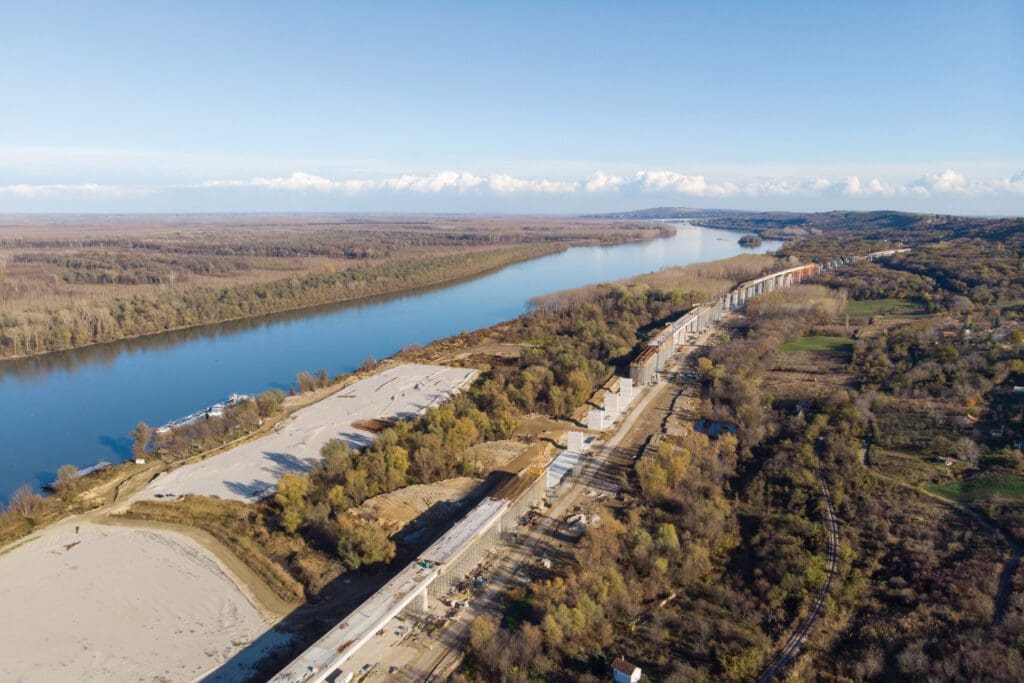
In addition, Hungary is well-placed diplomatically to serve a keystone state role. Consider the country’s position in the ongoing Russo-Ukrainian War as an example. On the one hand, Hungary is a staunch supporter of NATO and the EU, and continues to be an important part of the West. In a March interview with the Hungarian magazine Mandiner, Prime Minister Viktor Orbán stated that EU unity remains ‘the most important thing’, and that NATO ‘must be maintained, and there’s no point in building an army outside it’.7 Similarly, Budapest has not moved to prevent EU non-energy sanctions on Russia, continues to provide assistance to Ukraine, is a significant contributor to NATO’s missions, maintains steady investment in its military forces as per alliance guidelines, and so forth.
Yet unlike many of its fellow NATO and EU countries, Hungary has not and is not actively trying to sever linkages with Russia.
Hungary’s leadership recognizes, in Orbán’s words, that ‘after the war Russia will continue to exist. And after the war Hungary and the European Union will have interests.’ Consider the topic of energy security, a crucial Hungarian and EU interest. In the Mandiner interview, Orbán quite clearly stated that ‘there is no good argument for ending our energy cooperation with Russia’, noting that going down this path ‘would destroy the European economy’. Similarly, at the 27th Baku Energy Forum, Péter Szijjártó, Hungary’s Minister of Foreign Affairs and Trade, warned that the EU was determined to ‘get rid of Russian sources of energy’, but lacked any ‘practical dialogue on how to replace it’.8 Given that 85 per cent of gas consumed in Hungary originates from Russia, Budapest cannot give up on existing energy supply if it means intolerably higher energy prices. Since then, Hungary has been accused of ‘holding the EU hostage’ over its refusal to support energy sanctions on Russia.9
Yet Orbán has been proven right, as high energy prices increasingly push the European economy towards total collapse, and France’s president darkly warns that ‘the end of abundance‘ is at hand. This forthcoming European economic and societal suicide would be tragic if it was not the result of deliberate policy choices by Europe’s political leadership—the decision to become energy dependent on Russia came from Berlin, as did other foolish measures. The whirlwind born out of deprioritizing national interests is now being reaped in full. Meanwhile, at the time of writing, Budapest has signed an agreement with Russia’s Gazprom to secure an extra 5.8 million cubic metres of gas daily. As the situation stands, come winter, Hungarians benefiting from this deal and a well thought-out 2010 energy reform will have heated homes while much of the rest of the continent will be forced to make unnecessary ‘sacrifices’, as France’s president put it. This is not the first time that Hungary has held a much-criticized, contrarian position only to be validated in the end. In 2016, Budapest was widely condemned for building a border fence with Serbia in light of the migrant crisis. Yet in the long run, most EU member states adopted similar approaches or policies.
Overall, Budapest’s realism and prioritization of its own national interests/ domestic needs makes it a pragmatic and strategic player. Hungary’s ability to veto and/or force a negotiation on key EU and Western issues is both valued and recognized by Moscow, prompting it to continue to deal with it. Hungary thus remains a Russian– European conduit; a mediator through which diplomatic negotiations can be conducted.
All of these characteristics—a key geographical and trade location, infrastructure that makes it an energy interconnector, and a pragmatic approach to diplomacy—mean that Hungary is well positioned to act as the keystone state of East Central Europe. Doing so could be to Budapest’s advantage: as a keystone state, Hungary would not only emerge from the current war as a key player in the diplomatic affairs of the European continent, but would also benefit materially from acting as the central meeting point of East–West trade and logistics.
The Balancing
In order to properly become the East European keystone state, Hungary must be able to pull off an impressive balancing act and reorient its foreign policy towards prioritizing its own national interests without endangering collaboration with its neighbours and partners. It faces two challenges to doing so: strategically maintaining alignment with the EU (and the West more broadly) and Türkiye as a rival keystone state contender.
The first challenge is self-evident: civilizationally and culturally, Hungary has long belonged to the West—unlike Ukraine, which has long existed as the borderland between empires. Politically, Hungary is a member state of the European Union. Economically, Hungary is integrated into the West and dependent on it: intra-EU trade accounts for 78 per cent of the country’s exports, and 71 per cent of imports also come from EU member states. Militarily, Hungary is—as mentioned earlier—a member and active participant in NATO. The list goes on, but in short, Hungary is a long-time, card-carrying member of the West. And as part of the West, it is subject to maximalist pressures from other EU member states and the United States, including a strong ‘with us or against us’ mentality, most evident in the European Parliament’s declaration that Hungary is an ‘electoral autocracy’ for failing to fit within the (arguably increasingly) narrow mould of what the European Parliament defines as a liberal democratic government.10 The term ‘electoral autocracy’ is itself ill defined, and includes India, Türkiye, Armenia, and other such democratic countries.
These maximalist pressures are hard to overcome, but one suspects that they will diminish in coming months as the economic and energy consequences of the Russo-Ukrainian War are felt during the forthcoming winter. After all, any democratic government that wishes to survive and be re-elected must focus first and most of all on addressing the needs of its own citizens. With the world economy broadly headed towards global recession, the EU headed towards economic collapse, and the United States facing its own troubles, the simple reality is that the West needs Hungary as a potential mediator more than it can afford to isolate it for failing to adhere to its (materially-dependent) standards. In other words, the question is which will crumble first in the current political-economic context: Western complaints, or a continually popularly-elected, highly-successful Hungarian government?
The second challenge is Türkiye, as it stands as a potential rival for the status of keystone state of East Central Europe.
Like Ukraine and Hungary, Türkiye possesses significant integrative power: a geographical position between not just Russia and the EU, but also the Middle East; control over the Bosporus Straits, the Sea of Marmara, and the Dardanelles, and all trade that passes through there; membership in NATO but not in the EU, which grants it a greater degree of independence; a relatively independent foreign policy aimed more towards neutrality; a role as an energy interconnector; a large, relatively young, and growing population; and so on.
The issue, however, is that it seeks to become an independent power in its own right, with its own sphere of influence. President Recep Tayyip Erdoğan has sought to make the country a representative of the broader Muslim world, benefiting from the United States’ gradual pullout from the Middle East, and, through his ‘bigger than five’ agenda, seeks to further expand Türkiye’s significance beyond the UN Security Council’s five permanent members. Türkiye has also gone against the West’s agenda in various matters, such as in threatening to start a war with Greece, pushing back against US allies in the Mediterranean, continuing to do business with Russia, and more. Most telling of all is that Washington has thus far elected to mostly let Ankara do what it pleases. In other words, the United States has its geopolitical hands full dealing with Russia and China; if Türkiye wishes to assume regional leadership as an independent power, Washington either might not have the bandwidth to stop it, or calculates that it would be better to let Ankara bear some of the burden for local affairs. While this may suit Turkish interests, it disqualifies it from assuming the status of a keystone state.
After Winter Comes the Spring
Hungary’s first test as the keystone state of East Central Europe will be dealing with the failure of the region’s previous contender to this geopolitical posture: Ukraine. In the West, the Russo-Ukrainian War is not just a conflict over ideology, security, land, resources, or population; it has assumed a moral dimension, particularly on the currently reigning political left. To quote Professor Dominic Tierney from Swarthmore College: ‘No foreign conflict since the Spanish Civil War has so captured the imagination of the left. […] Today, many on the left see Ukraine as another contest between fascism and democracy, and that rare thing: a good war. Thousands of Americans have gone to join the struggle.’11 This view is broadly shared by some on the political right as well, particularly amongst neoconservatives like US House Congressional Representative Adam Kinzinger, who, amongst others, ludicrously called for the United States to impose a no-fly zone over Ukraine.12
In Russia, the war is regarded as existential.
Moscow is clinically realist, and does not believe in the Western conception of a rules-based liberal international world order—as Vladimir Putin expressed in his 2007 Munich Security Conference speech, it is ‘designed to promote the foreign policy interests of one or a group of countries’. Putin believes, as summarized by Nikolas Gvosdev and DamjanKrnjević Mišković in Baku Dialogues, ‘that a Russia that lacks the wherewithal to defend itself from outside pressure will find itself forced to adopt Western standards (or, an outcome expressed much more quietly in Moscow, a very junior partnership with China)’.13 For myriad reasons, Ukraine—or at the very least, its eastern regions—is considered indispensable for Russia to be able to defend itself against outside pressure.
No war can last forever, however. The current conflict is not only damaging for both sides; it is positively ruinous. There is hard limit to how much economic damage can be inflicted before both sides are forced to the negotiating table to discuss a settlement, likely building upon the two previous Minsk Agreements or some variation thereof, depending on who has the upper hand at the time of negotiation. This will require excruciating negotiations, to say nothing of substantial diplomatic leadership. Ukraine would likely face constitutional changes, as both the West and Russia would have to provide actionable security guarantees, and a very capable mediating party will have to put in a significant amount of effort to ensure this all works. Hungary, as a keystone state, might very well be the best candidate for the job.
NOTES
1 According to Bremmer, a ‘pivot state’ is a country building profitable relationships with several great powers without becoming dependent on any of them.
2 According to Arta Moeini, ‘middle powers are better defined by their 1) enduring regional presence and geographic rootedness, 2) considerable economic and military capacity relative to neighbours, 3) historical and cultural pedigree as civilizational states, and 4) the regionally-focused, limited extent of their ambitions—they seek not world domination but a sphere of influence in their near-abroad matching their historical range and scope’. ‘Middle Powers in the Multipolar World’, The Institute for Peace & Diplomacy (26 March 2022).
3 Nikolas K. Gvosdev, ‘Keystone States’, Horizons: Journal of International Relations and Sustainable Development, 5, United States: The Giant Challenged (Autumn 2015), 104–123, www.jstor.org/stable/48573591.
4 Gvosdev, ‘Keystone States’.
5 ‘Strategic Equilibrium: An Interview with Hikmat Hajiyev, Assistant to the President of the Republic of Azerbaijan and Head of the Department of Foreign Policy Affairs of the Presidential Administration
of the Republic of Azerbaijan.’ The interview was conducted in early August 2020 by Fariz Ismailzade and Damjan Krnjević Mišković for Baku Dialogues, https://bakudialogues.ada.edu.az/articles/strategic-equilibrium.
6 Gvosdev, ‘Keystone States’.
7 ‘Magyarország békepárti – Orbán Viktor a Mandinernek’ (Hungary is for Peace. Viktor Orbán in Interview with Mandiner), Mandiner (3 March 2022), https://mandiner.hu/cikk/20220302_kozelet_orban_ viktor_interju_orosz_ukran_haboru.
8 https://abouthungary.hu/news-in-brief/fm-energy-security-issue-requires-a-pragmatic-approach
9 ‘Magyarország békepárti – Orbán Viktor a Mandinernek’.
10 Jorge Liboreiro and Sándor Zsiros, ‘Hungary Is No Longer a Full Democracy But an “Electoral Autocracy”, MEPs Declare in New Report’, Euronews (16 September 2022), www.euronews.com/my-europe/2022/09/15/ hungary-is-no-longer-a-full-democracy-but-an-electoral- autocracy-meps-declare-in-new-report.
11 Dominic Tierney, ‘The Rise of the Liberal Hawks. They Picked the Right Side’, The Atlantic (4 September 2022), www.theatlantic.com/ideas/archive/2022/09/ liberal-democrat-military-support-ukraine-trump/671328/. (Emphasis mine.)
12 https://twitter.com/AdamKinzinger/ status/1497354030904975364.
13 Nikolas Gvosdev and Damjan Krnjević Mišković, ‘Bringing Russia back in from the Cold’, Baku Dialogues, 5/3 (Spring 2022), http://dspace.ada.edu.az/xmlui/bitstream/handle/20.500.12181/312/BD%20 5.3.pdf?sequence=1&isAllowed=y.

